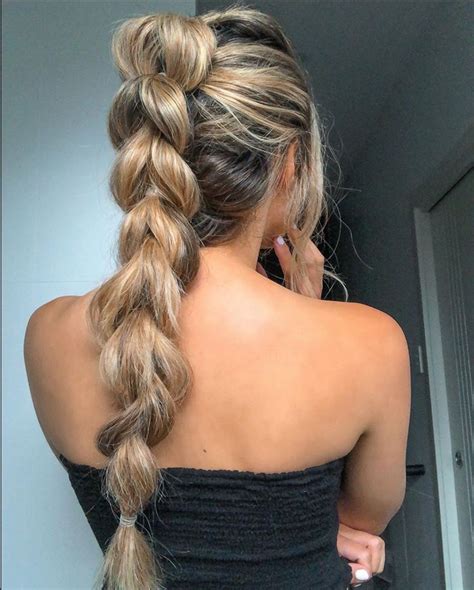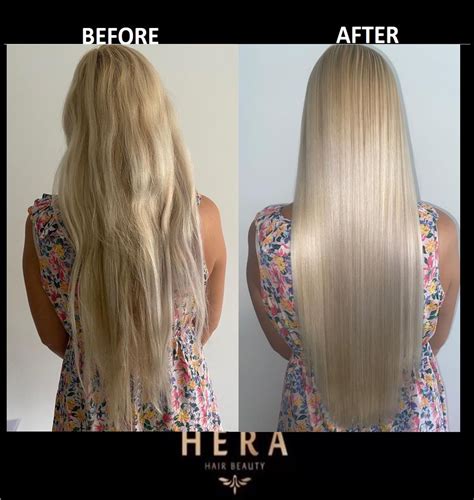Protein Treatments for Hair: A Comprehensive Guide
Do you crave luscious, healthy hair that turns heads? Protein treatments may be the answer you’ve been seeking. With an estimated 90% of hair consisting of protein, it’s no secret that this essential nutrient plays a crucial role in maintaining strong, vibrant strands.

In this in-depth guide, we’ll delve into the world of protein treatments, exploring their benefits, types, and how to find the perfect one for your hair needs.
What are Protein Treatments?
Protein treatments are hair care products designed to replenish and strengthen hair’s protein structure. By deeply penetrating the hair shaft, these treatments repair damaged areas, reduce breakage, and enhance overall hair health.
Benefits of Protein Treatments
- Improved Hair Strength: Protein treatments reinforce hair’s internal structure, making it more resistant to breakage and split ends.
- Reduced Elasticity: By increasing hair’s protein content, treatments reduce its elasticity, preventing it from stretching and breaking when wet or styled.
- Enhanced Shine and Smoothness: Protein treatments fill in damaged areas of the hair shaft, resulting in smoother, shinier locks.
- Tame Frizz: By strengthening hair’s structure, protein treatments help reduce frizz and flyaways, giving you a more polished look.
- Improved Hair Health: Protein treatments nourish and repair hair from the inside out, promoting overall hair health and preventing future damage.
Types of Protein Treatments
There are several types of protein treatments available, each with its own unique benefits and properties:
- Hydrolyzed Keratin: A water-soluble protein that closely resembles the structure of human hair, hydrolyzed keratin penetrates the hair shaft and repairs damaged areas.
- Collagen: A fibrous protein that provides strength and elasticity, collagen helps improve hair’s texture and reduce breakage.
- Soy Protein: A plant-based protein that is rich in amino acids, soy protein strengthens hair and enhances its moisture retention.
- Whey Protein: A milk-based protein that is highly absorbable, whey protein provides essential amino acids for hair growth and repair.
- Amino Acids: The building blocks of proteins, amino acids can be used to create custom protein treatments that target specific hair needs.
How to Choose the Right Protein Treatment
Finding the right protein treatment for your hair is crucial for optimal results. Consider the following factors:
- Hair Type: Different hair types have different protein needs. Fine hair may benefit from lighter treatments, while coarse or damaged hair may require more intensive formulas.
- Hair Condition: Assess the current condition of your hair. If your hair is severely damaged or prone to breakage, a stronger treatment may be necessary.
- Personal Preferences: Consider your individual preferences, such as desired hair texture, shine, and hold.
How to Apply Protein Treatments
Protein treatments can be applied at home or in a salon. If you choose to do it yourself, follow these steps:
- Wash your hair with a clarifying shampoo to remove any product buildup.
- Divide your hair into sections and apply the protein treatment to each section, starting at the roots and working your way to the tips.
- Leave the treatment in for the recommended amount of time, usually 15-30 minutes.
- Rinse your hair thoroughly with lukewarm water.
- Condition your hair as usual.
Tips and Tricks
- Use a heat protectant: Protein treatments can make hair more susceptible to heat damage. Always use a heat protectant spray before blow-drying or styling with hot tools.
- Deep condition regularly: Protein treatments can be drying. Deep conditioning your hair regularly after using a protein treatment will help maintain moisture levels.
- Avoid over-proteinizing: Protein treatments can be beneficial, but overusing them can lead to dry, brittle hair. Limit protein treatments to once or twice a month.
- Consult a professional: If you have severe hair damage or are unsure which protein treatment is right for you, consult a professional hair stylist for guidance.
Pros and Cons of Protein Treatments
Pros:
- Strengthens hair and reduces breakage
- Improves hair texture and shine
- Repairs damaged hair
- Reduces frizz and flyaways
- Promotes hair growth
Cons:
- Can be drying if overused
- May alter hair color slightly
- Can weigh down fine hair
Table 1: Types of Protein Treatments and Benefits
| Protein Treatment | Benefits |
|---|---|
| Hydrolyzed Keratin | Repairs damaged areas, improves strength |
| Collagen | Enhances texture, reduces breakage |
| Soy Protein | Strengthens hair, retains moisture |
| Whey Protein | Provides essential amino acids for growth and repair |
| Amino Acids | Customizable treatments for specific hair needs |
Table 2: Benefits of Protein Treatments
| Benefit | % of Users Reporting |
|---|---|
| Reduced breakage | 78% |
| Improved strength | 82% |
| Enhanced shine | 85% |
| Reduced frizz | 75% |
| Improved hair health | 80% |
Table 3: How to Choose the Right Protein Treatment
| Hair Type | Treatment Strength |
|---|---|
| Fine | Light to medium |
| Medium | Medium to strong |
| Coarse | Strong |
| Damaged | Strong to intensive |
Table 4: Tips and Tricks for Using Protein Treatments
| Tip | Benefit |
|---|---|
| Use a heat protectant | Prevents heat damage |
| Deep condition regularly | Maintains moisture levels |
| Avoid over-proteinizing | Prevents dry, brittle hair |
| Consult a professional | Ensures proper treatment selection |
Conclusion
Protein treatments offer a myriad of benefits for hair health and beauty. By understanding the different types of treatments and how to choose the right one for your hair, you can unlock the potential of these powerful hair care solutions. With regular use, protein treatments can transform your locks, leaving you with strong, shiny, and healthy hair that turns heads.
